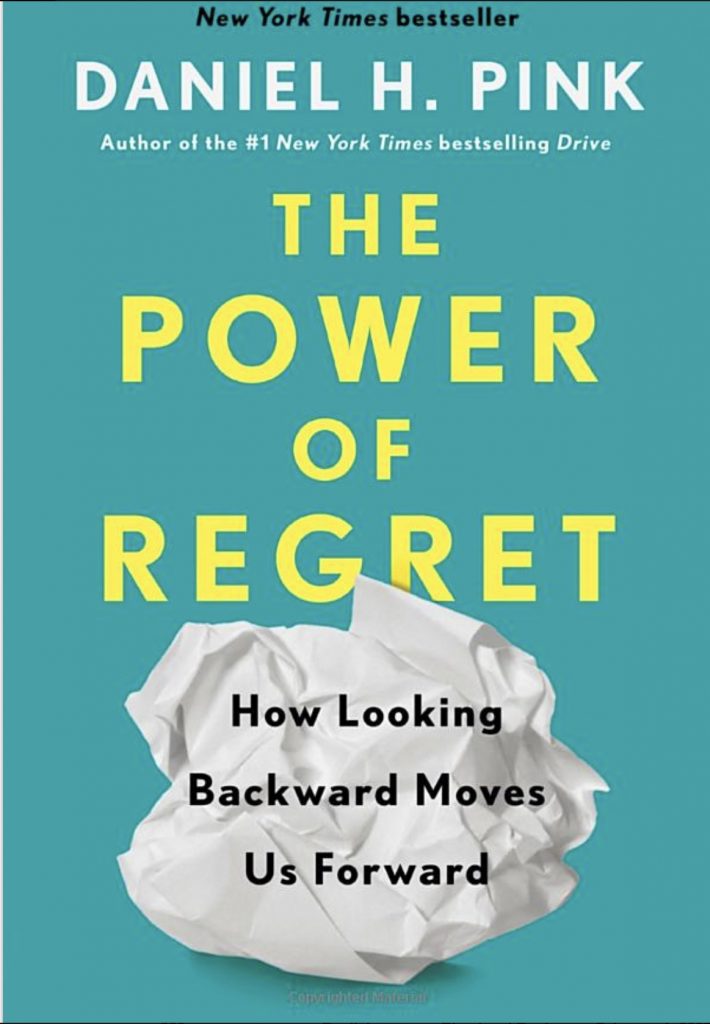
Becoming “a People”
Persons don’t become a “people,” through buying more books and learning more information and trying harder to be a better version of their old self. We become a people by sharing deeply in one another’s lives, learning to love one another and be loved by one another into our true selves and our real lives. This is the chosen people, the royal priesthood, the holy nation, and God’s special possession. Indeed, this Church Jesus is building is God’s special possession in all the world, for this is how God saves the world.
J D Walt
Confirmation Bias
The most reliable cure for confirmation bias is interaction with people who don’t share your beliefs. They confront you with counterevidence and counterargument. John Stuart Mill said, “He who knows only his own side of the case, knows little of that,” and he urged us to seek out conflicting views “from persons who actually believe them.” People who think differently and are willing to speak up if they disagree with you make you smarter, almost as if they are extensions of your own brain. People who try to silence or intimidate their critics make themselves stupider, almost as if they are shooting darts into their own brain.
Jonathan Haidt
apokatastasis
A number of Church Fathers during the first four centuries of Christianity believed in what’s called apokatastasis, or “universal restoration” (Acts 3:21). [1] They believed that the real meaning of Christ’s resurrection was that God’s love was so perfect and so victorious that it would finally triumph in every single person’s life. They were so sure about this that their thought partially gave rise to the idea of purgatory as a place. In the dying process or even after death, God’s infinite love can and will still get at us! They felt no soul could resist the revelation of such infinite love.
Could God’s love really be that great and that universal? I believe it is. Love is the lesson, and God’s love is so great that God will finally teach it to all of us. We’ll finally surrender, and God will win in the end. That will be God’s “justice,” which will swallow up our lesser versions. God—Love—does not lose!
Richard Rohr
Student Loan Forgiveness
About 43 million people in the U.S. have a combined total of $1.6 trillion in federal student loans, according to government estimates.
An analysis published by the left-leaning Brookings Institution found nearly a third of all student debt is owed by the richest 20 percent of households, compared to just 8 percent held by the poorest 20 percent of households.
Large-scale student debt forgiveness would represent a massive cash infusion to America’s wealthiest households, and a comparative dribble for the rest.
The average federal student loan debt balance last year was about $37,000. The most burdened borrowers are already eligible to be helped by certain income-based repayment programs, which cap monthly student debt payments at 10 percent of their discretionary incomes and eventually forgives the remaining balance, typically after 20 years. Since the debts can eventually be forgiven for these high-need borrowers, the benefits of even partial debt forgiveness would still go disproportionately to high-income borrowers.
According to a DataStream analysis of Labor Department data, the cost of a college education has increased 1,200 percent since 1980, compared to overall inflation of 236 percent.
The Dispatch
Religious Experience
Among the more pernicious ideas that inhabit our contemporary world is the notion that we are all isolated, independent, and alone. Even when we gather, we think of ourselves as but one among many. Among the most glaring exceptions to this form of thought, however, are sporting events. People attend a football game and declare when it is finished, “We won!” or “We lost!” We feel genuine joy at the first and sadness at the second. We do not say, “They won” (unless we mean the opposing side). This is not actually strange. Sport has, from its earliest beginnings, been a religious experience. That said, it is an experience that we fail to consider or understand. It is also a shallow, meaningless, religion.
The mystery of sport is that we have some sense not only watching, but participating in what takes place. The team’s victory is my victory. The emptiness of this mystery is that what is being “participated” in has no substance or true being. We feel robbed when a referee blows a call and the game ends with the wrong winner. At such a moment the emptiness of the game is revealed. It had no more meaning than a mistake.
This meditation on sport is a very vacuous way to get at the notion of true participation (of which it is but the least shadow).
Fr Stephen Freeman
Gospel
While the gospel is a message, it cannot be confined to messages. While the gospel is the truth, it cannot be captured by a series of propositional truths. Before the gospel is anything else, the gospel is God. Gospel means “good news,” and the good news is God. The good news is not that God loves us. The good news is that God is love. The good news is not that Jesus saves. It is that Jesus is himself salvation.
We think we truly comprehend God and the gospel because we have some comprehension of what God has done for us. This is good, as far as it goes, but it does not go anywhere near far enough. When our understanding of the gospel is limited to what God has done for us, our understanding of sharing the gospel will be limited to telling others what God has done for them.
To be sure, the gospel is the message of what God has done for us in Jesus Christ, but in a far greater sense, the gospel is who Jesus Christ is to us and in us and through us for the world. The gospel is not a body of knowledge about who God is and what God has done. The gospel is actually knowing God. Jesus prayed, “Now this is eternal life: that they know you, the only true God, and Jesus Christ whom you have sent” (John 17:3).
We have lived through a period of world history wherein the measure of mastery consisted in knowing about a subject. The Christian faith is not meant for this paradigm. Real Christianity can never be reduced to knowing about God. We must go on to knowing God. To think one can master the subject of God is the ultimate idolatry. Real Christianity is about understanding oneself as subject to God and becoming mastered by Jesus Christ.
The gospel of Jesus Christ is not God’s solution to our sin problem. The gospel is that “God was in Christ reconciling the world to himself, not counting [our] sins against [us]” (2 Cor. 5:19). It is a reconciled relationship through which God lives in us and we in him. The gospel is not the knowledge but the knowing. The domain of knowledge is in a body of information. The domain of knowing is in the body of Jesus Christ. And none of this is meant to eschew or despise knowledge, but rather to say that knowledge is a penultimate understanding. Ultimate understanding means knowledge about God must give way to knowing God.
J D Walt
Artificial Intelligence
Acusensus’ technology can also be used to identify “hot spots,” helping determine where officials may need to improve enforcement, make changes to infrastructure or adopt new legislation. In recent months, the company conducted demonstrations and evaluations for a number of local law enforcement agencies and state transportation departments.
During an 18-hour assessment in August of a high-risk corridor in Missouri that was averaging three and a half crashes a day, more than 11,000 vehicles drove by. At least 60 percent of the drivers were speeding; an average of 6.5 percent were using mobile phones, more than twice the national average; and just under 5.5 percent were engaged in two concurrent risky driving behaviors.
https://www.nytimes.com/2022/04/19/technology/ai-road-car-safety.html?referringSource=articleShare
Cremation
So many ashes to ashes, so much dust to dust. Cremation is now America’s leading form of final “disposition,” as the funeral industry calls it — a preference that shows no sign of abating.
In 2020, 56 percent of Americans who died were cremated, more than double the figure of 27 percent two decades earlier, according to the Cremation Association of North America (CANA). By 2040, 4 out of 5 Americans are projected to chose cremation over casket burial, according to both CANA and the National Funeral Directors Association (NFDA).
Tolerance
“I don’t like the word tolerate. Who am I to tolerate you? I prefer the word respect. I must respect you even if I do not agree with you. In fact, my disagreement may be an expression of my respect for you. If I truly respect you, don’t I own you my honesty?” Elie Wiesel
To understand others we have to understand the complexities and contradictions in our own selves. In learning our own complexity we form the possibility of learning from others. If we think we are always right, we have nothing to learn. The mark of learning is listening.
In discussing others we bring to the surface our bias. Wiesel thought the most inhuman person was still a human and we are called to the struggle to understand that person. It requires courage.
The “real tragedies” in society are not between right and wrong but between two rights. We cannot collapse the gap between us; in that gap is the possibility of creating a new peace and reconciliation. Differences express the gap; the gap is where the peace can take root.
Scot McKnight
STILL ON THE JOURNEY


